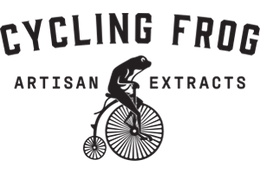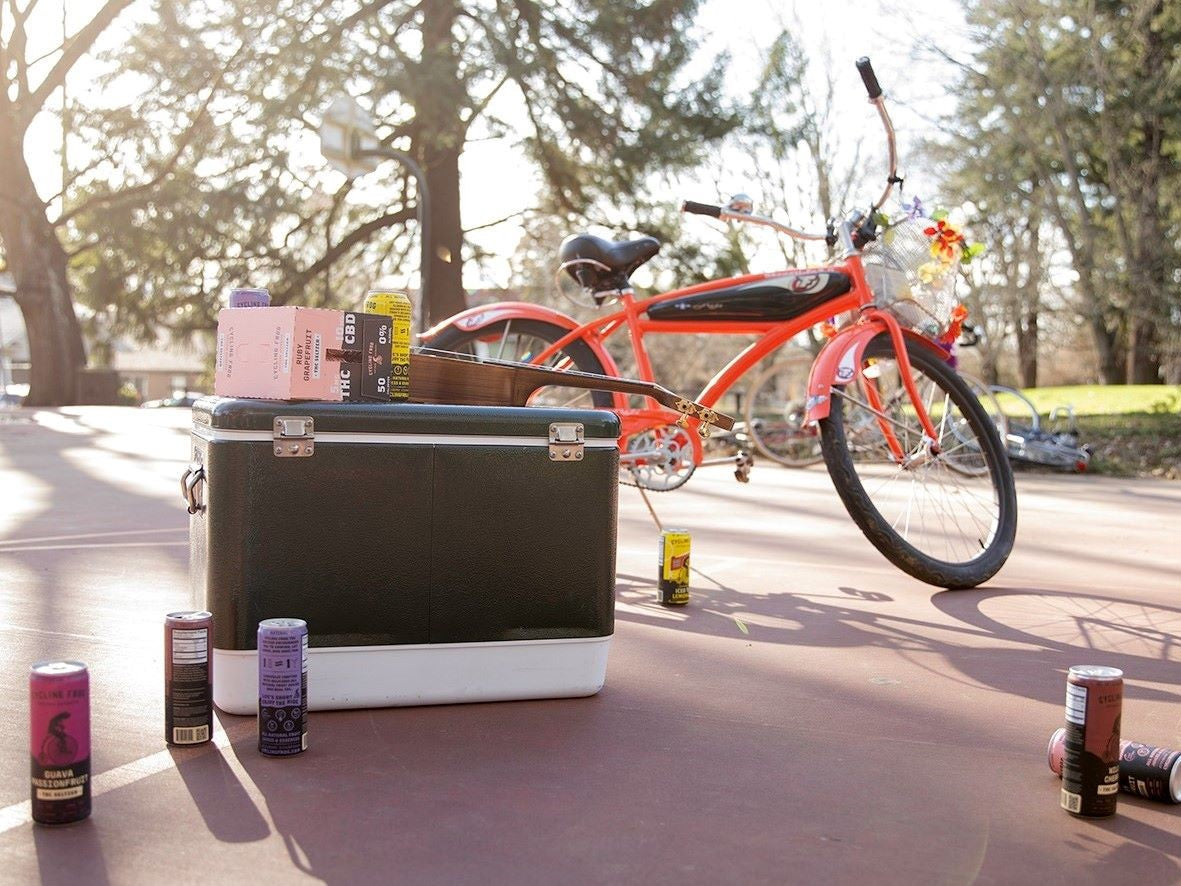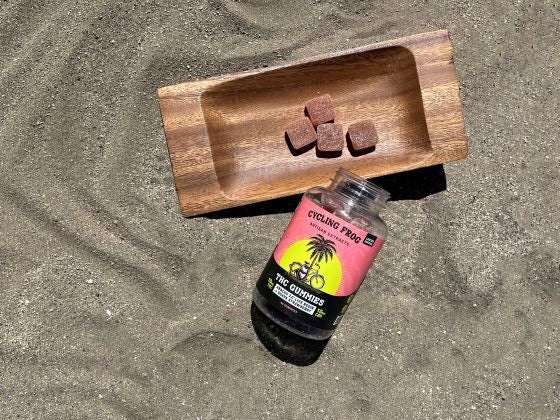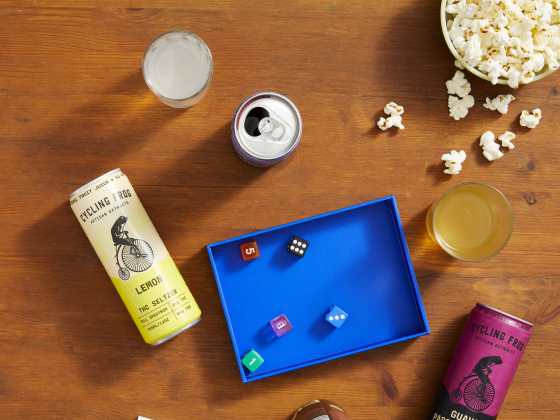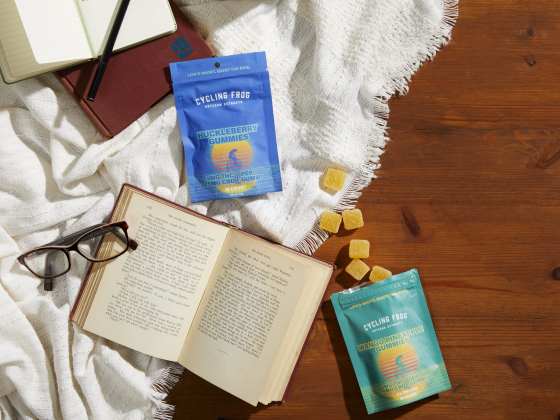You’ve probably already heard about CBD and THC by now, and if you haven’t, you must be living on a different planet. After all, CBD is one of the most important health supplements of the last decade, and legal, recreational THC has slowly (very!) been spreading throughout the US for about as long. While CBD is available nationally, THC’s availability has been limited to the 18 states that have legalized it, making it extremely difficult for more than half of America to freely enjoy both THC and CBD.
Cannabis contains over a hundred different chemical compounds – 113 to be precise – all of which are known as cannabinoids. THC and CBD are just two types of cannabinoids that have increased in popularity in recent years. Most of the interest in THC and CBD comes from the effects and health benefits of these cannabinoids.
As the Devil’s lettuce (that’s marijuana to those cannabis virgins out there) is being legalized in more states, the variety of THC and CBD products available has increased. But what is it that makes them so popular? Is it just another passing trend, or are there actual benefits to taking THC and CBD? And which one is better, THC or CBD?
Let’s find out!
What’s in this article?
- What is THC?
- What is CBD?
- THC vs CBD: What’s the difference?
- Why are people combining THC and CBD together?
- THC vs CBD: What are the benefits?
- How to start combining THC and CBD together

What is THC?
Tetrahydrocannabinol (try saying that when you’re high!), more commonly known as THC, is the psychoactive element found in marijuana. Basically, this is the stuff that’s going to make you unwind and feel more relaxed. But why does THC make you high?
We all have what are called cannabinoid receptors in our bodies, which are usually found in the brain. THC binds with the receptors that control your mood and pain, creating a feeling of euphoria. It’s this feeling that makes you feel “high”.
What is CBD?
Cannabidiol, or CBD, is a phytocannabinoid (this is the last of the science lingo – we promise!) and is often referred to in the media for its remedial effects. It’s typically advertised as a “booster” that can be added to your morning smoothie or your post-workout protein shake—it’s even used in bath bombs now. What is it that makes it so popular, you ask?
CBD has been linked to treating several health conditions, including arthritis, epilepsy, and insomnia; however, its widespread popularity can largely be attributed to its association with reducing anxiety levels. Due to increasing demand, CBD is available in many forms, including:
- Oils
- Extracts
- Capsules
- Patches
- Vapes
- Creams and lotions
- Sprays
- Foodstuffs
- Tinctures
- Gummies
- Nasal sprays
THC vs CBD: What’s the difference?
Researchers are still working to fully understand the effects THC and CBD have on the body – it’s very complex. What they do know is that they are both associated with appetite, memory function, mood, sleep, and even fertility. And although THC and CBD share many similarities, there are some key differences between the two compounds.
|
THC |
CBD |
|
|
|
|
|
|
|
|
|
|
The side effects of THC are significantly more than those of CBD, so it’s important to ease yourself in – start with a low dose and slowly build up until the desired effect is achieved. And the same goes for CBD, especially if you’re new to the cannabis scene (we were all virgins once!), as you want to avoid feeling overwhelmed by the experience.
Take your time and be patient. Consuming cannabinoids takes practice, so start low and slowly increase the dose.
Why are people combining THC and CBD together?
You may have noticed that a lot of products are now combining THC and CBD, and there’s a very good reason for that. THC and CBD are a match made in heaven – you can take our word on that! — as they are more effective when consumed together.
When THC and CBD are ingested together, they combine with the cannabinoid receptors in our bodies, many of which are found in the nervous system. It’s believed this is where the psychoactive effect we experience comes from. They work in tandem, creating what scientists call the “entourage effect”, referring to the many benefits that you may experience from taking THC and CBD together.

THC vs CBD: What are the benefits?
Many people swear by THC and CBD as an all-natural remedy to many ailments, such as chronic pain, inflammation, insomnia, and even anxiety. It is believed that this natural alternative is not only more effective but is also less taxing on the body compared to some medicines.
Research on THC is limited due to the legal restrictions in the United States, but here are some of the benefits found so far.
- Pain relief
Did you know that relief for chronic pain is the most common reason why people seek the use of medical marijuana? Cannabis studies in patients with chronic pain found that THC improved their pain by around 40%. However, more research is needed to determine the doses, forms, and combinations of cannabinoids are most effective for chronic pain patients.
2. Improves quality of sleep
Insomnia and sleep disturbances are common for people living with health conditions and chronic pain. Studies have shown that THC can improve short-term sleep problems, decrease the amount of time it takes to fall asleep, and reduce the number of sleep disturbances throughout the night. What scientists don’t know, is whether the quality of sleep is improved because chronic symptoms were alleviated.
3. Eases nausea from chemotherapy
Did you know that two THC-containing drugs have been available to treat chemotherapy-induced nausea for over 30 years? Researchers have found that patients who took medicine containing THC in combination with their standard treatment experience better protection against nausea and vomiting, compared to those who just received the standard treatment.
4. Reduces muscle spasms in paraplegics
Some studies suggest that THC can reduce muscle spasms, which is commonly experienced by Multiple Sclerosis (MS) patients and paraplegics. Scientists have found that THC used in combination with other cannabinoids improves muscles spams more than a placebo.
But what about the benefits of CBD? How do they compare to THC? Let’s take a look.
1. Eases anxiety and depression
CBD is most advertised for its ability to ease the symptoms of anxiety and depression – is this true? Studies have found that in the right dosage, CBD can significantly reduce anxiety, more so than a placebo. It’s also thought that it has similar effects to an antidepressant, although this requires more trials.
2. Reduces PTSD symptoms
Several human trials suggest that CBD can reduce the symptoms of Post-Traumatic Stress Disorder (PTSD), especially when used in tandem with therapy. It helps to decrease anxiety effectively, while the therapy helps treat the root of the problem.
3. Treats opioid addition
Did you know that CBD could be used to help treat people who are dependent on opioids? One study suggests that CBD significantly reduced cravings and withdrawal anxiety in heroin users without any adverse side effects.
4. Treats epilepsy syndromes
CBD can be used to treat epileptic seizures in some cases. In 2018, the FDA approved the use of CBD to treat seizures associated with Lennox-Gastaut syndrome and Dravet syndrome – rare forms of epilepsy.
THC vs CBD for anxiety
Anxiety relief is a hot topic when it comes to THC and CBD, mainly because of how these cannabinoids are advertised. However, experts have found that Delta-8 THC and CBD can help you manage your anxiety and depression. Which one is right for you when dealing with anxiety?
From what we can gather, research shows that Delta-8 THC and CBD have very similar effects when relieving anxiety. It ultimately comes down to which one is more suitable for you, personally. For example, if your workplace does regular drug tests, using Delta-8 THC for your anxiety isn’t a good idea as it shows up on a drug test. In this instance, CBD would be a much better option.

Delta-8 THC has also been linked with an increase in appetite and food consumption, so if you’re particularly concerned about your weight, THC is best avoided. CBD has the opposite effect – it’s well known for decreasing your appetite and helping to promote weight loss.
However, CBD can react with certain medications such as blood thinners or immunosuppressives. So, if you are going to take CBD for your anxiety, make sure it’s safe to do so with your current medication.
THC vs CBD for pain relief
There is no definitive answer whether THC or CBD is more effective for pain relief. Our understanding is that studies show that a combination of THC and CBD together provides the best results for pain relief. However, due to the legal status surrounding cannabis, there is a limit to the kinds of research that can take place.
It is thought that CBD has anti-inflammatory properties, while THC helps us cope with pain better. We recommend talking to your doctor before experimenting with THC and CBD for pain relief (just in case!) — remember, always start with a low dose until you find what works for you.

How to start combining THC and CBD together
If you’re new to the cannabis scene – yes, you’ve heard us say it before – start with a low dose and increase if needed, especially when combining THC and CBD. You may find that you need to experiment to find what works best for you, whether that’s starting with CBD first and introducing THC later once you’re used to the effects.
Try using different ways to take THC and CBD until you find the one you prefer. We recommend starting with the following:
- Gummies
- Mints
- Tinctures
- Seltzers
- Softgels
- Isolates
If you’re looking for the perfect product to get you started, try our Huckleberry Gummies or Wild Cherry Seltzers, which provide a 1:5 ratio of THC and CBD – perfect for those virgins out there!
THC can make you feel high, but if you take it in responsible doses, like our seltzers and gummies, you won’t be left feeling overwhelmed. It’s about loving life and laughing loudly. You only live once, so enjoy the ride!
